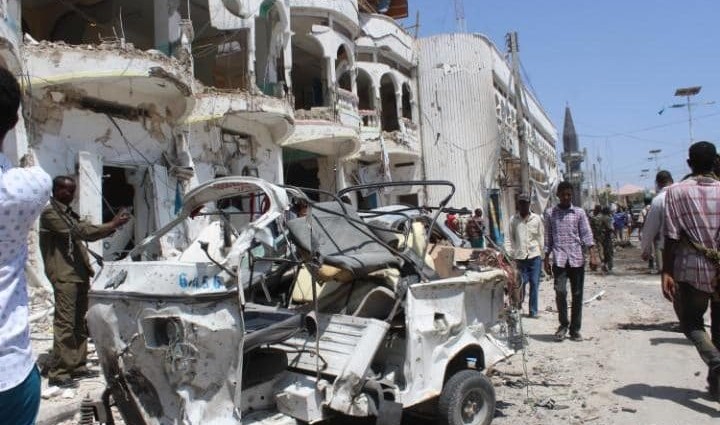15 dead after Islamists storm Mogadishu hotel

Islamist militants intent on undermining Somalia’s faltering political transition killed at least 15 people yesterday after they stormed a hotel in Mogadishu which is popular with members of the country’s new parliament.
Panicked guests hid under beds or jumped out of windows as gunmen went from room to room in the Dayah hotel, stalking guests.
Several people were executed after militants pretending to be policemen lured them into corridors, survivors said. “They kicked down room doors and at some point posed as rescue teams, telling those inside to come out (only) to kill them,” one guest, Hassan Nur, told the Associated Press.
Although no legislators were reported among the dead, two prominent clan elders who participated in the selection of the new parliament, sworn in last month, were killed, according to police.
Responsibility for the attack was claimed by al-Shabaab, al-Qaeda’s Somali affiliate, which has struck at several hotels in the country’s war-scarred capital in recent months. In trademark fashion, the attack on the Dayah was initiated just before 9am, when many guests were still eating breakfast, by a suicide-bomber who rammed a lorry laden with explosives into a security barrier outside the hotel.
The force of the blast destroyed several nearby houses. Four Shabaab gunmen then stormed the hotel, firing at guests in the lobby and restaurant before making their way to the upper floors of the four-storey hotel. Forty-five minutes after the attack a second device exploded outside the hotel where journalists and onlookers had gathered. Seven reporters were wounded.
All four gunmen were later killed in a shoot-out with police. After months of delays, parliament is expected to elect a president in the next few weeks with Hassan Sheikh Mohamud, the incumbent, favourite to win a second term. Although the electoral process to choose a new parliament and president has involved fewer than 15,000 people, the United Nations sees it as a vital step towards restoring normality in Somalia, 25 years after a civil war plunged the country into chaos.
Al-Shabaab, which long thrived in the anarchy, is a far less potent force than it was before UN-backed African Union troops drove it out of Mogadishu in 2011. Weakened since by American drone strikes that have killed much of its leadership, the group nonetheless continues to hold territory in the countryside and has been able to launch a series of attacks against softer targets, like hotels and government buildings, in the past year.
Политика конфиденциальности | Правила пользования сайтом








